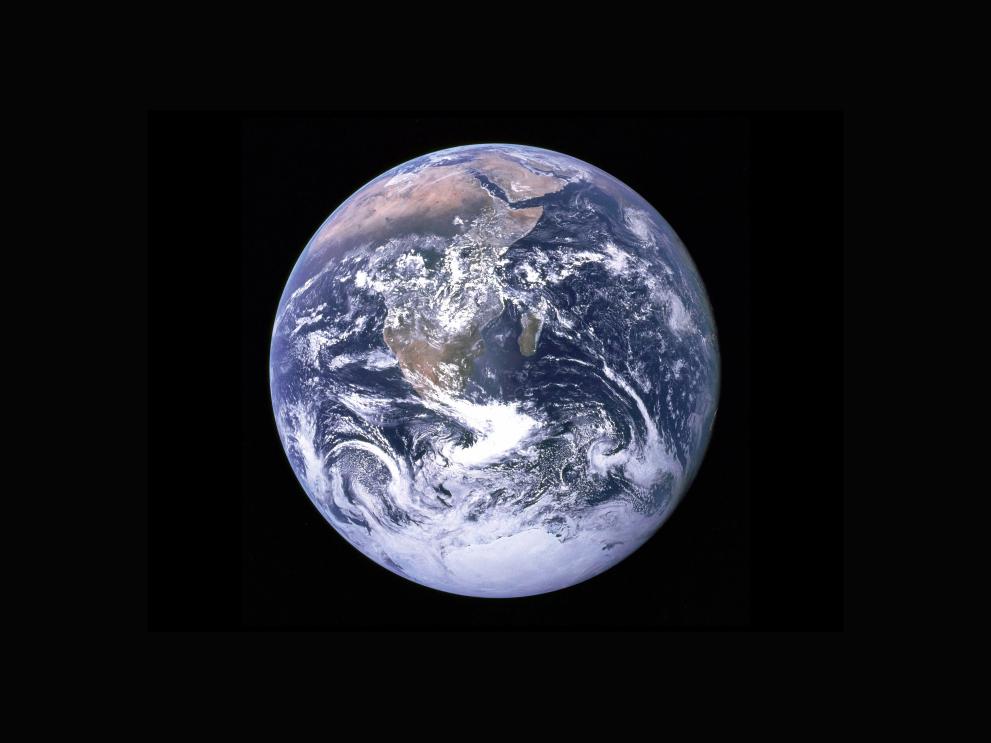
Earth Overshoot Day, a campaign by the Global Footprint Network, calculates the point in the year when humanity has consumed all the natural resources the Earth can replenish within that same year. In 2023, it falls on August 2, and for the remaining 152 days we find ourselves in a resource deficit accumulating environmental dept. Currently, we would require 1.75 Earths to meet our global resource demand. Instead we borrow resources at the expense of the environment, future generations, and poor nations.
Additionally, the Global Footprint Network estimates as of when individual countries are in overshoot. Based on their ecological footprints, a country’s overshoot day represents the date on which Earth Overshoot Day would fall if the global population lived like the people in that country. European Union countries all reach their overshoot days within the first half of the year, with Luxemburg starting on February 14 and Romania being the last EU country on June 11. Other countries, like India and many African nations, have ecological footprints below the global biocapacity and therefore, do not have an overshoot day.
Impacts and Risks of Overshoot
Since the first Earth Overshoot Day on December 29, 1970, the date has steadily shifted earlier each year. This constant state of overshoot for over 50 years poses significant risks, disrupting the Earth’s natural cycles, generating excessive CO2 emissions, and resulting in extreme weather events like heatwaves, wildfires, droughts, and floods. This summer in Europe, marked by record-breaking temperatures above 45°C in some Mediterranean regions and the devastating wildfires in Greece, exemplifies the consequences of this imbalance.
The Power of Possibility
So, how can we take action to move Earth Overshoot Day back again in the calendar? The Global Footprint Network has created the Power of Possibility platform showcasing existing solutions that can minimize our environmental impact and aid in the recovery of the Earth's resources to ensure economic stability for us and future generations. EMAS can play a significant role in this endeavor, encouraging and supporting organisations in Europe and worldwide in optimizing resource usage and reducing waste production.
The Role of EMAS Organisations
Moving the date of Earth Overshoot Day requires collective efforts from private and public entities of all sizes. Establishing an economy based on resource restoration and protection rather than depletion is a critical task for our time, and every organisation plays a vital role in driving this transformation. EMAS offers a systemic approach to facilitate the adoption of sustainable practices. It empowers organisations to manage, report, and continuously improve their circularity and overall environmental performance.
One impactful measure highlighted on the Power of Possibility platform is transitioning to renewable energy. Increasing electricity generation from low-carbon sources from 39% to 75% can move Earth Overshoot Day by 26 days. Many EMAS organisations are already leading in this aspect. For example, ITELAZPI, a Basque telecommunication company registered with EMAS since 2012, ensures its entire electricity consumption is sourced from renewable sources. Similarly, does the Institut Català de la Salut's largest public healthcare institution and they are now aiming to self-produce 30% of their electricity consumption through photovoltaic panels installed in 270 primary care centers. Scaling up such self-sufficient electricity solutions could move the date by another 10 days.
Generally, EMAS organisations across all sectors are pioneers in seeking sustainable solutions to be less impactful to the planet. Some other notable examples include Trentino Trasporti S.p.A., an Italian bus company committed to creating an environmentally friendly transport infrastructure, VAUDE, a clothing brand working towards a fair and sustainable textile sector, and the fully circular company Klimiscoal. Located in Kalamata, the region renowned for its olive oil production, they utilize olive stones, a waste product, to create ecological barbecue briquettes that not only produce more heat than wood briquettes but also emit 30% less CO2 when burned. Earth Overshoot Day serves as a stark reminder of the urgency to prioritize sustainable practices, and by adopting EMAS organisations are equipped with a great tool to start their journey towards the power of possibilities and create positive change.
Details
- Publication date
- 1 August 2023
- Author
- Directorate-General for Environment
